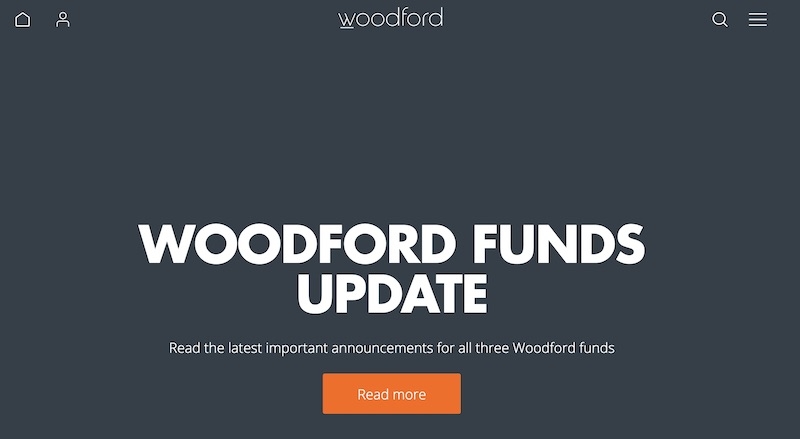Fund administrator Link, which is handling the failed Woodford funds, is making its first distribution to investors this week, with most expecting to lose a substantial chunk of their original investments.
Link has written to investors to reveal the amount investors will receive from the Woodford Equity Income fund which was managed by Neil Woodford: https://equityincome.linkfundsolutions.co.uk/media/5udcqzt5/investornotification28012020.pdf
The first payment will be equivalent to about 70% of the current fund’s value and represents the money Link has recouped so far from selling stocks.
While further payments are possible once more illiquid investments are sold many investors are braced to lose up to 40% of their investment.
The BBC reports that one investor, a woman of 61 from Preston, invested £20,000 hoping the money would grow to help pay for a new bungalow. She is not expecting to receive more than £12,500 back. Another investor expects back only half of his £21,000 investment.
At its peak Woodford’s UK Equity Income Fund managed £10bn of investors’ money.
Ryan Hughes, head of active portfolios at AJ Bell, said: “In some respects, today represents the first day of closure for investors who have suffered from the terrible performance of the Woodford Equity Income fund.
“However, while this payment of the first tranche of the liquidated assets will be a relief for thousands of investors who have been trapped in the fund since June last year, there is still huge uncertainty around the money still stuck in illiquid assets.
“This payment represents just over 70% of the current fund value and has been raised from the sale of the liquid element of the portfolio. Investors will be acutely aware that a large portion of their investment remains trapped in the illiquid, unquoted holdings that Park Hill are trying to sell.
“Selling the liquid holdings was the easy bit. For Park Hill, it is a hugely challenging task to sell the illiquid holdings in a timely fashion and investors still remain in the dark as to how long they will have to wait for the remainder of their money, and importantly, how much they are actually likely to get back.”

